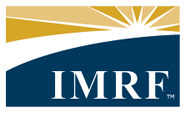To: Authorized Agents of Counties
Re: Participation of attorneys and other professionals in IMRF
November 3, 2006
EXECUTIVE SUMMARY
Whether an attorney or other professional should be reported to IMRF as a participating employee depends on several factors: the person’s employment status, position or job title, and number of hours of work expected.
Assistant state’s attorneys, public defenders, and assistant public defenders, if they are expected to work enough hours, are required to participate in IMRF. Attorneys and other professionals who are independent contractors and not common-law employees are specifically excluded from IMRF coverage.
Incorrectly enrolling a person who is ineligible for IMRF or failing to enroll a person who is eligible can cause serious problems for a county.
Who is eligible to participate in IMRF?
IMRF participation is mandatory for employees holding qualifying positions with IMRF participating units of government. On the other hand, a person who does not hold a qualifying position or who is not an employee is ineligible to participate in IMRF. The Illinois Pension Code specifically excludes independent contractors from IMRF coverage. IMRF participation is not a benefit that can be negotiated or otherwise provided to a person who is not an employee in a qualifying position. Attorneys and other professionals who are independent contractors are ineligible for IMRF participation.
State’s attorneys and public defenders and their assistants are considered to be county employees for IMRF purposes. This is true regardless of their contractual status. If the public defender, his or her assistants, and the assistant state’s attorneys are expected to work enough hours to meet the county’s IMRF hourly standard (600 or 1,000 hours), they must participate in IMRF. As an elected official, the state’s attorney may choose whether or not to participate in IMRF.
Other attorneys and professionals working for the county as independent contractors are not eligible to participate in IMRF.
To participate in IMRF, an attorney or other professional must be a common-law employee of the county. The county board or other official must direct the work of the professional, set the hours of work, and treat the professional as an employee under all the usual employer-employee criteria.
If the professional is a common-law employee, he or she will be eligible for the usual benefits offered to employees, including health insurance, will be covered under the county workers’ compensation insurance for a work-related injury, and will be eligible to collect unemployment compensation if fired or laid off (and would otherwise meet the unemployment compensation eligibility requirements for terminated employees).
Confirming eligibility
Erroneous reporting of persons who have no statutory right to IMRF participation is a serious problem. by reporting a person in error, you promise pension coverage as well as disability and death benefit protection where none actually exists. You also increase the pension liability and costs for your county and its taxpayers beyond what is allowed under the law.
Failing to enroll eligible public defenders, their eligible assistants, or eligible assistant state’s attorneys also creates problems for the county. If they are not enrolled when they should be, their pensions are not being funded as they are earned. This increases the employer’s final cost of their pensions.
IMRF audits enrollment forms. When an attorney who is not an assistant state’s attorney, public defender or assistant public defender is enrolled, our Enrollment Auditors will contact the county to verify that the attorney is a common-law employee eligible for IMRF participation.
In addition, all applications for omitted service credit filed by members identified as attorneys will be audited to make sure the past service was as a common-law employee and not as an independent contractor.
Questions?
If you have questions about the participation of attorneys or other professionals, please contact IMRF’s Associate General Counsel, Michael Weinstein, at (630) 368-5365 or a Member Services Representative at 1-800-ASK-IMRF (1-800-275-4673).


